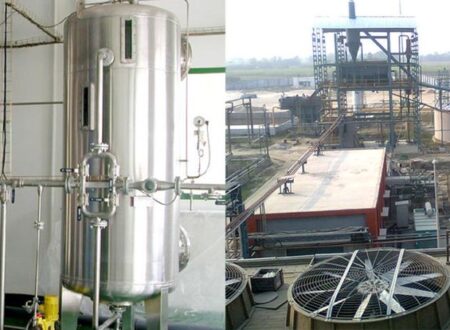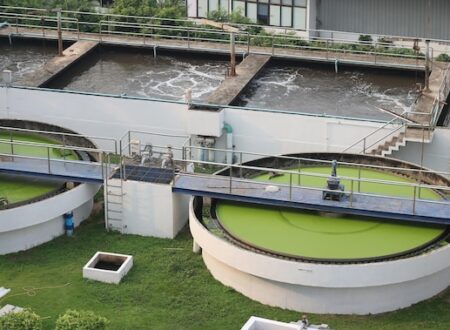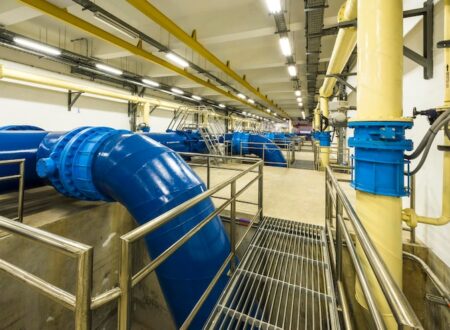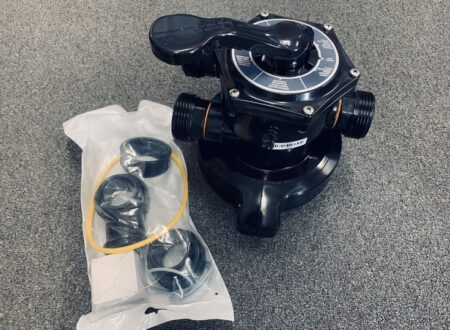Introduction
Water is one of the most essential resources for life, industry, and agriculture. However, the increasing demand for fresh water and the growing problem of pollution have made water treatment more important than ever. Among the many technologies used in water and wastewater treatment, the MB Plant in Noida (Moving Bed Biofilm Reactor Plant) has emerged as one of the most effective and reliable solutions.
In this blog, we will explore what an MB Plant is, its process, applications, benefits, and why industries and municipalities are widely adopting this technology. If you are looking to set up a water treatment plant or want to know how MB Plants can solve your wastewater challenges, this guide will provide all the answers.
🔹 What is an MB Plant in Water Treatment?
An MB Plant in Noida refers to a Moving Bed Biofilm Reactor (MBBR) Plant, an advanced biological treatment process that treats wastewater using biofilm carriers suspended in aeration tanks.
Unlike conventional systems that rely solely on suspended growth microorganisms (like activated sludge), the MB Plant combines suspended growth and attached growth processes. In simple words, microorganisms grow on specially designed plastic carriers that float inside the tank. These carriers provide a larger surface area for bacteria to thrive, which makes the treatment process faster and more efficient.
🔹 How Does an MB Plant Work? (Process Explained)
The working process of an MB Plant in Noida is straightforward yet highly effective. Below is a step-by-step explanation:
1. Pre-Treatment
Before entering the MB Plant, wastewater undergoes screening and grit removal to eliminate large solids, sand, and other debris. This prevents clogging of the system.
2. Aeration Tank with Biofilm Carriers
- The heart of the MB Plant is the aeration tank.
- Special plastic carriers (media) are added, which provide surface area for the microorganisms to grow as biofilms.
- Air is continuously supplied through diffusers to ensure sufficient oxygen for the bacteria.
3. Biological Degradation
- Microorganisms (attached to the media and suspended in water) break down organic matter, nitrogen compounds, and other pollutants.
- Since the bacteria are attached to carriers, they remain active and stable even under fluctuating loads.
4. Secondary Clarification
- After biological treatment, wastewater flows to a secondary clarifier where biomass (sludge) is separated from the treated water.
5. Disinfection & Final Treatment
- Depending on the application, further steps like chlorination, UV, or tertiary filtration may be applied.
- The final effluent is safe for discharge into rivers, reuse in industry, or irrigation.
🔹 Key Components of an MB Plant in Noida
- Screen Chamber – Removes large solids.
- Equalization Tank – Balances flow and load.
- Aeration Tank with Carriers – The main biological treatment stage.
- Air Diffusers & Blowers – Supply oxygen for microbial activity.
- Secondary Clarifier – Settles biomass and sludge.
- Sludge Handling Unit – Collects and disposes of excess sludge.
- Disinfection Unit – Ensures safe and clean treated water.
🔹 Uses of MB Plant in Water Treatment
MB Plants in Noida are versatile and can be used across multiple sectors. Below are some major uses:
1. Municipal Wastewater Treatment
- Treats sewage from cities and towns.
- Reduces organic load, nitrogen, and BOD.
2. Industrial Wastewater Treatment
- Used in industries like textile, pharmaceuticals, food processing, beverages, chemicals, and pulp & paper.
- Handles high-strength wastewater effectively.
3. Decentralized Sewage Treatment
- Ideal for residential complexes, hotels, resorts, hospitals, and institutions where centralized treatment is not available.
4. Reuse Applications
- Treated water can be reused for gardening, flushing, cooling towers, and irrigation.
5. Upgradation of Existing Plants
- Existing activated sludge plants can be upgraded with MBBR technology to improve performance without increasing footprint.
🔹 Advantages of MB Plant in Noida
MB Plants offer several benefits compared to conventional treatment systems:
1. High Treatment Efficiency
- Removes BOD, COD, ammonia, and organic matter effectively.
2. Compact Design
- Requires less space than traditional activated sludge systems.
3. Low Sludge Production
- Produces less excess sludge, reducing handling and disposal costs.
4. Simple Operation
- Easy to operate with minimal manual intervention.
5. Flexibility
- Can handle fluctuating loads and shock loads effectively.
6. Energy Efficient
- Consumes less energy compared to other systems due to efficient aeration.
7. Scalable & Modular
- Can be expanded easily by adding more carriers and tanks.
8. Cost-Effective
- Lower capital and operating cost compared to advanced systems like MBR (Membrane Bioreactor).
🔹 MB Plant vs. Other Treatment Systems
| Feature | MB Plant (MBBR) | Activated Sludge | MBR Plant |
| Footprint | Compact | Large | Compact |
| Efficiency | High | Moderate | Very High |
| Sludge Production | Low | High | Moderate |
| Cost | Moderate | Low | High |
| Maintenance | Easy | Moderate | High |
| Application | Municipal & Industrial | Municipal | Advanced reuse |
🔹 Maintenance of MB Plant
While MB Plants in Noida are easy to operate, proper maintenance ensures long life and efficiency.
- Check the aeration system regularly for uniform air distribution.
- Clean diffusers and blowers periodically.
- Monitor MLSS, DO, and pH levels to keep microbes healthy.
- Backwash and clean carriers if biofilm overgrows.
- Remove excess sludge from clarifiers.
- Service pumps and motors as per schedule.
🔹 Why Choose MB Plant for Your Wastewater Treatment in Noida?
If you are looking for a reliable, compact, and efficient wastewater treatment solution, MB Plant in Noida is the right choice. It is suitable for:
- Industries generating high organic load wastewater.
- Residential complexes, hotels, hospitals, and institutions requiring decentralized treatment.
- Municipalities need to upgrade old plants with modern technology.
- Organizations aiming to reuse water for non-potable applications.
By choosing an MB Plant, you are not only ensuring regulatory compliance but also contributing to environmental sustainability.
🔹 Conclusion
The MB Plant (MBBR Technology) is one of the most trusted and widely used solutions in modern water and wastewater treatment. Its compact design, high efficiency, low sludge generation, and ease of operation make it an ideal choice for both municipal and industrial applications.
If you are planning to install an MB Plant in Noida, make sure to partner with a reliable and experienced company that can provide end-to-end solutions – from design and installation to maintenance and after-sales support.
👉 For high-quality and cost-effective MB Plant in Noida, connect with Shri Balaji Aqua, a trusted name in water and wastewater treatment solutions.
Contact: +91-9711252434
Mail: admin@shribalajiaqua.com




